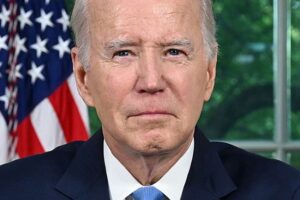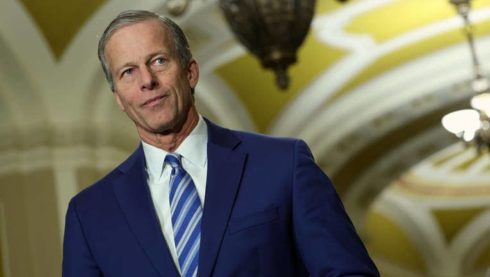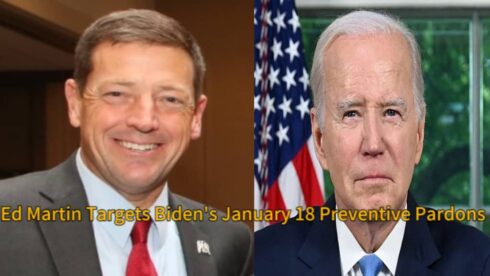Senate Republicans have chosen John Thune, the 63-year-old Senator from South Dakota, as their new leader. Thune emerged victorious in a closely contested election, defeating Florida Senator Rick Scott and Texas Senator John Cornyn in a secret ballot held on Wednesday. This leadership change follows the Republican Party’s victory in the recent elections, which secured them a 53-47 majority in the Senate, marking their return to control in the chamber.
In his acceptance statement, John Thune expressed his gratitude, saying he was “extremely honored” to lead his colleagues and looked forward to advancing President Trump’s agenda. Thune’s victory signals the end of Kentucky Senator Mitch McConnell’s tenure as Senate Republican leader, a position he held for an unprecedented 18 years. McConnell, at 82, decided earlier this year to step down from the leadership role, though he plans to complete his Senate term, which runs until January 2027.
John Thune: Changing Republican Leadership Landscape
Mitch McConnell’s departure marks a significant shift in Senate leadership. Known for his influential role in reshaping the U.S. Supreme Court and the federal judiciary, McConnell was a formidable force in Republican politics. However, his tenure faced growing resistance from within the Republican caucus, which has shifted towards a more Trump-centric stance over the past decade. In February, McConnell announced his decision to step down as leader, sparking a hotly contested leadership race.
John Thune, previously the minority whip, competed against two prominent contenders: Cornyn, also a McConnell ally, and Scott, a vocal Trump supporter who previously challenged McConnell’s leadership. Scott’s candidacy garnered support from high-profile Trump allies, including Elon Musk and Tucker Carlson, positioning him as the most conservative option in the race. Despite his backing, Scott was eliminated in the first round, securing only 13 votes. Thune ultimately won in the second round, beating Cornyn 29-24, securing his position as the new Senate majority leader.
Responsibilities and Challenges Ahead
As the incoming Senate majority leader, John Thune will face a range of responsibilities and challenges. He will serve as the primary spokesperson for the Republican caucus, representing their stances on legislative issues and controlling the Senate’s agenda. Thune will also oversee the confirmation process for President Trump’s cabinet appointments and judicial nominees, playing a pivotal role in shaping the federal judiciary.
John Thune’s leadership will require balancing the interests of a diverse Republican caucus. Although he has occasionally been at odds with Trump, particularly over the former president’s actions on January 6, John Thune has maintained a professional relationship with him. In recent months, he has been in regular contact with Trump, including a meeting at Mar-a-Lago, signaling a pragmatic approach to working with the White House. Thune’s ability to unite his caucus and collaborate with President Trump will be essential for advancing the Republican legislative agenda in the upcoming term.
Reactions from Key Figures
The outcome of the leadership election has drawn reactions from both Republican and Democratic leaders. McConnell praised Thune’s victory as “a clear endorsement of a consummate leader,” expressing confidence in John Thune’s legislative experience and political acumen. On the other hand, Scott thanked his supporters, emphasizing the importance of their voices in calling for change within the party. Scott’s loss, coupled with John Thune’s win, has been viewed by some as a move towards reasserting Senate Republicans’ independence from Trump’s influence.
Democratic leaders have also expressed optimism about working with John Thune. Senate Majority Leader Chuck Schumer, in a congratulatory statement, highlighted his past bipartisan efforts with Thune, expressing hope that their collaborative work could continue. John Thune’s track record of bipartisanship may facilitate future negotiations, potentially allowing Republicans and Democrats to find common ground on critical issues. As John Thune assumes his leadership role, his approach to bridging divides both within and across party lines will be closely watched.














